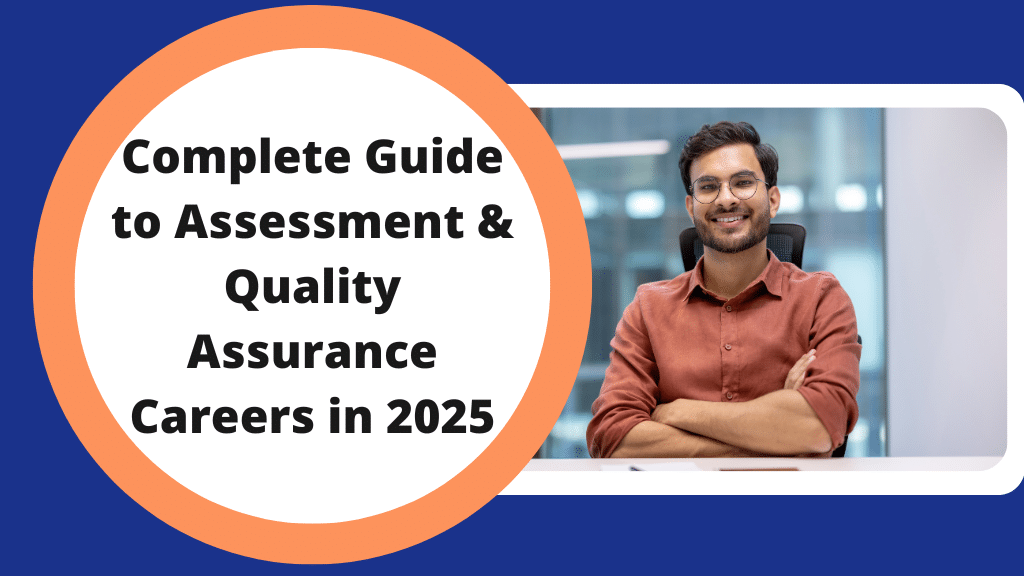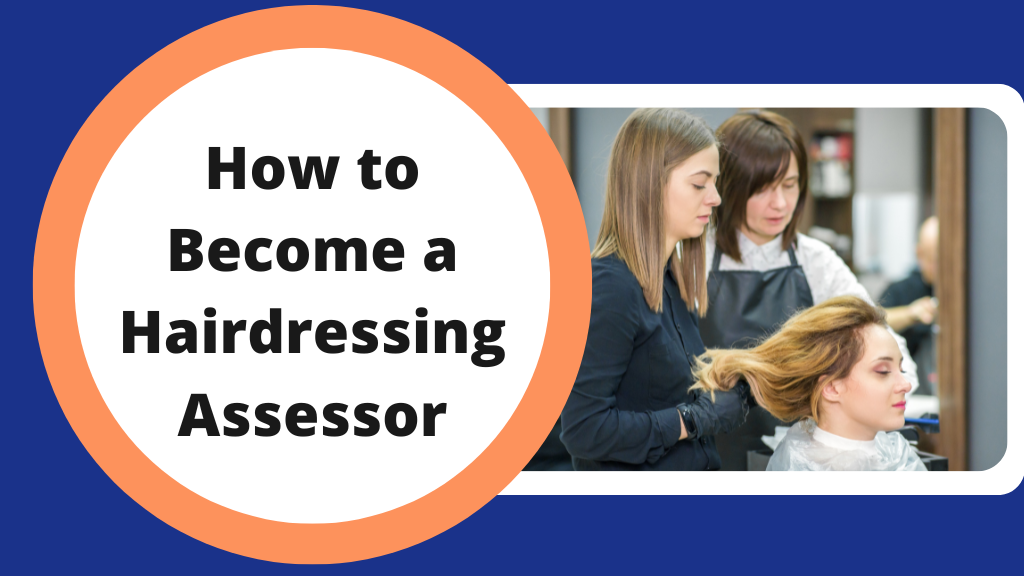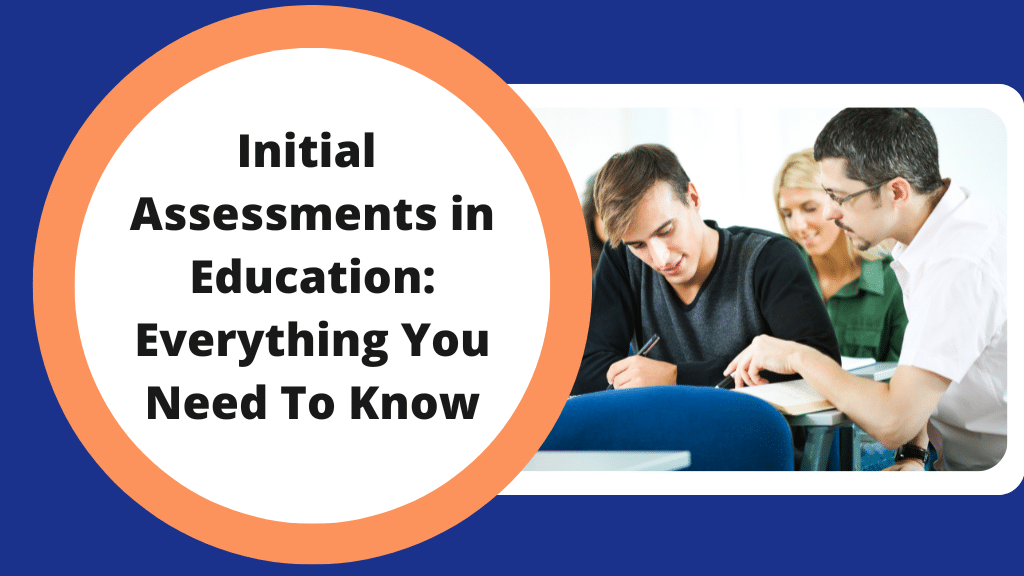April 30, 2025
Complete Guide to Assessment & Quality Assurance Careers in 2025

Ready to step into a career with clear growth opportunities and real impact? Assessment and quality assurance provide a professional path where your expertise matters and advancement is structured. In 2025, these roles are in high demand across the education and training sectors and come with competitive pay and the satisfaction of helping others achieve their qualifications.
What is an Assessor & Quality Assurer?
As an assessor, you’ll evaluate how well learners meet established standards. You’ll focus on checking real-world skills and knowledge in vocational settings. Your toolkit will include observations, discussions, portfolio reviews, and workplace assessments.
If you move into quality assurance, you’ll oversee the assessment process itself. You’ll make sure assessments are delivered consistently and fairly.
Most Common Assessment & Quality Assurance Careers
The main career paths available in assessment and quality assurance include:
Vocational Assessor
As a Vocational Assessor, you’ll work directly with learners to check their skills against industry standards. You will need to keep up to date with the awarding bodies’ regulatory requirements to make sure your advice and guidance are current.
Where You’ll Work
- Further education colleges
- Training providers
- Apprenticeship settings
- Adult education centres
What You’ll Do
- Plan assessment activities
- Watch learners perform tasks in real or simulated workplaces
- Have professional conversations to check knowledge
- Review evidence portfolios
- Give constructive feedback
- Keep clear assessment records
Qualifications You’ll Need
The Level 3 Certificate in Assessing Vocational Achievement (CAVA) is the standard qualification for this role. This helps you assess in both classroom and workplace settings.
Internal Quality Assurer (IQA)
As an IQA, you’ll be responsible for assuring the quality of assessment within your organisation. This is often the next step after working as an assessor. The two roles will often work in the same team, but there are differences between an assessor and an IQA.
What You’ll Do
- Check assessment decisions by sampling
- Support and develop your assessor team
- Make sure assessment practices are consistent
- Maintain quality records
- Solve assessment problems
- Prepare for external verification visits
Qualifications You’ll Need
The main IQA course required for this role is the Level 4 Award in the Internal Quality Assurance of Assessment Processes and Practice.
External Quality Assurer (EQA)
External Quality Assurers are employed by awarding organisations like City & Guilds, Pearson, NCFE, etc. Your role would be to work with centres like FE colleges, independent training providers, employer-based training departments, or adult education institutions to ensure that they are maintaining consistent assessment standards.
What Does an EQA Do?
- Visit centres to verify their quality systems
- Sample assessment decisions from different assessors
- Guide centres on how to meet regulations
- Report on centre performance
- Identify improvements needed
- Help centres develop their quality processes
Qualifications You’ll Need
The Level 4 Award in External Quality Assurance is usually required, along with good experience as an assessor and IQA.
Functional Skills Assessor
As a Functional Skills Assessor, you’ll focus on evaluating the essential skills that learners need for success in both education and the workplace. This specialised role involves checking how well people can apply basic, practical skills in real-life situations.
What You’ll Do
You will assess:
- English (reading, writing, speaking, listening)
- Mathematics (number, measure, shape, data handling)
- Digital literacy (information processing, content creation, digital safety)
Your learner groups:
- Apprentices completing mandatory functional skills components
- Adult learners returning to education
- Vocational students developing transferable skills
- Employment program participants
You’ll use specialised assessment techniques, including:
- Controlled task-based assessments
- Contextual application of skills in relevant scenarios
- Standardised examinations with practical components
- Adaptive assessment technologies that track skill development
Qualifications You’ll Need
To become a Functional Skills Assessor, you’ll need both formal qualifications and relevant expertise in the area you want to assess. You will likely need to have one of the following assessment qualifications:
- Level 3 Award in Understanding the Principles and Practices of Assessment
- Level 3 Award in Assessing Vocationally Related Achievement
- Level 3 Award in Assessing Competence in the Work Environment
- Level 3 Certificate in Assessing Vocational Achievement (CAVA)
End-Point Assessor
As an End-Point Assessor, you’ll play an important role in apprenticeship assessment. You’ll evaluate apprentices at the final stage of their learning journey, and you will be employed by an End-Point Assessment Organisation (EPAO) that is separate from the training provider.
Your assessment decision will be impartial and fair, which means there will be consistent standards across all apprentices regardless of their employer or training background.
What you’ll assess:
- How well apprentices meet their apprenticeship standards
- Their ability to apply knowledge in real-world situations
- Professional behaviours and attitudes
- How they combine different skills in their work
Your assessment methods will include:
- Watching apprentices demonstrate practical skills
- Having professional conversations to explore their knowledge
- Reviewing their projects
- Checking their portfolio of evidence
- Administering knowledge tests
Qualifications You’ll Need
To become an End-Point Assessor, you’ll need both assessment qualifications and work experience. You’ll usually need a Level 3 assessment qualification (like the Certificate in Assessing Vocational Achievement) plus significant work experience (usually 3-5 years) in the specific industry you’ll be assessing.
You’ll also need to complete training with your assessment organisation, stay up-to-date with current industry practices, and take part in regular standardisation activities to make sure your assessments are fair and consistent.
Typical Career Progression
The assessment and quality assurance field has clear job roles and pathways for professional development. As you progress, you can steadily build your expertise and take on more responsibility.
From Practitioner to Assessor
Many successful assessors begin their careers as practitioners in their field. If you’re currently working in a trade, profession, or teaching role, becoming an assessor allows you to:
- Use your existing occupational knowledge in a new context
- Develop specialised assessment and feedback skills
- Maintain connection with your industry while broadening your role
- Increase your value to employers through dual expertise
- Create more varied work opportunities
Many training providers and colleges look for practitioners with current industry experience who can bring real-world insights to their assessment teams. You might start with part-time assessment work alongside your main role before transitioning fully as your experience grows.
From Assessor to IQA
After gaining experience as an assessor, some people move on to leading internal quality assurance in their organisation. This progression increases their responsibility and earning potential while allowing them to shape best practices.
To make this step up, you typically need:
- At least 1-2 years of assessment experience
- A Level 4 IQA qualification
- Strong understanding of quality systems
- Experience with a range of assessment methods
- Good interpersonal skills for supporting assessors
From IQA to EQA or Lead Quality Roles
With years of experience as an IQA and further qualifications, you can go on to employment as a:
- External Quality Assurer: Making sure the quality of assessment is consistent across different FE providers.
- Lead IQA or Quality Manager: Taking overall responsibility for quality systems within larger organisations, often requiring additional management qualifications.
- Assessment or Quality Consultant: Offering specialised expertise to help centres develop their assessment and quality systems.
- Curriculum or Assessment Designer: Creating assessment materials and quality frameworks for awarding bodies or large training providers.
- Quality Director for Awarding Organisations: Strategic leadership of quality standards across the entire qualification frameworks.
How to Get Started With Carlton Training
Ready to start your career in assessment and quality assurance? With the right qualifications from Carlton Training, you’ll be ready to take advantage of the growing opportunities in this profession and have a rewarding career that combines your industry expertise with specialised assessment skills. Book your assessor course or quality assurance course today. Beginning your assessment and quality assurance career is just a click away.
Not sure which qualification is right for you? Contact Carlton Training to discuss your career goals and identify the most appropriate qualification pathway for your circumstances.
Next ›‹ Previous
Back to Blog








